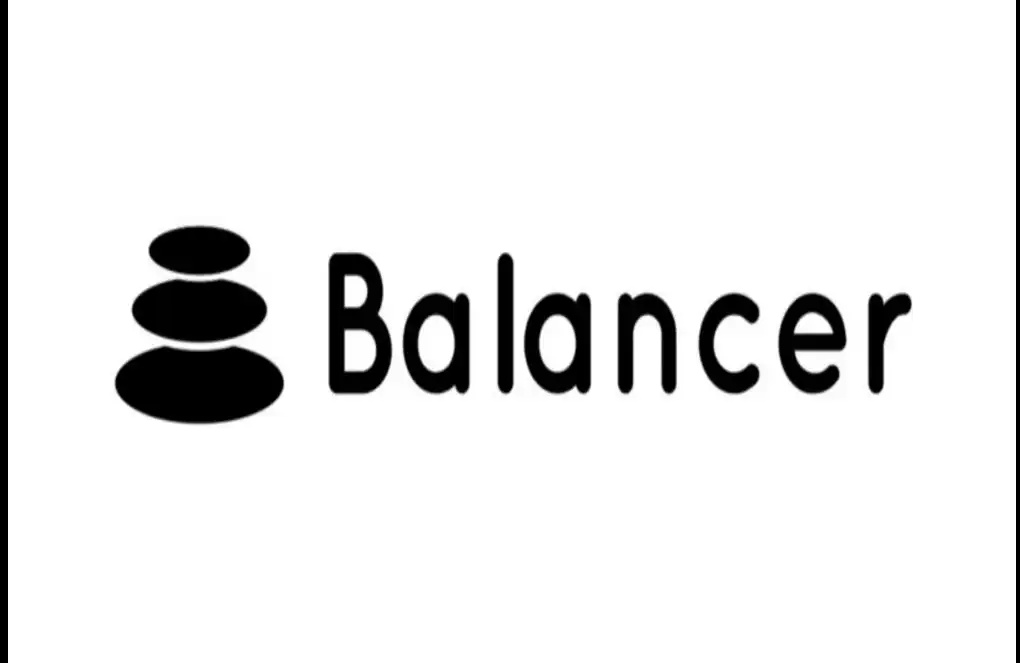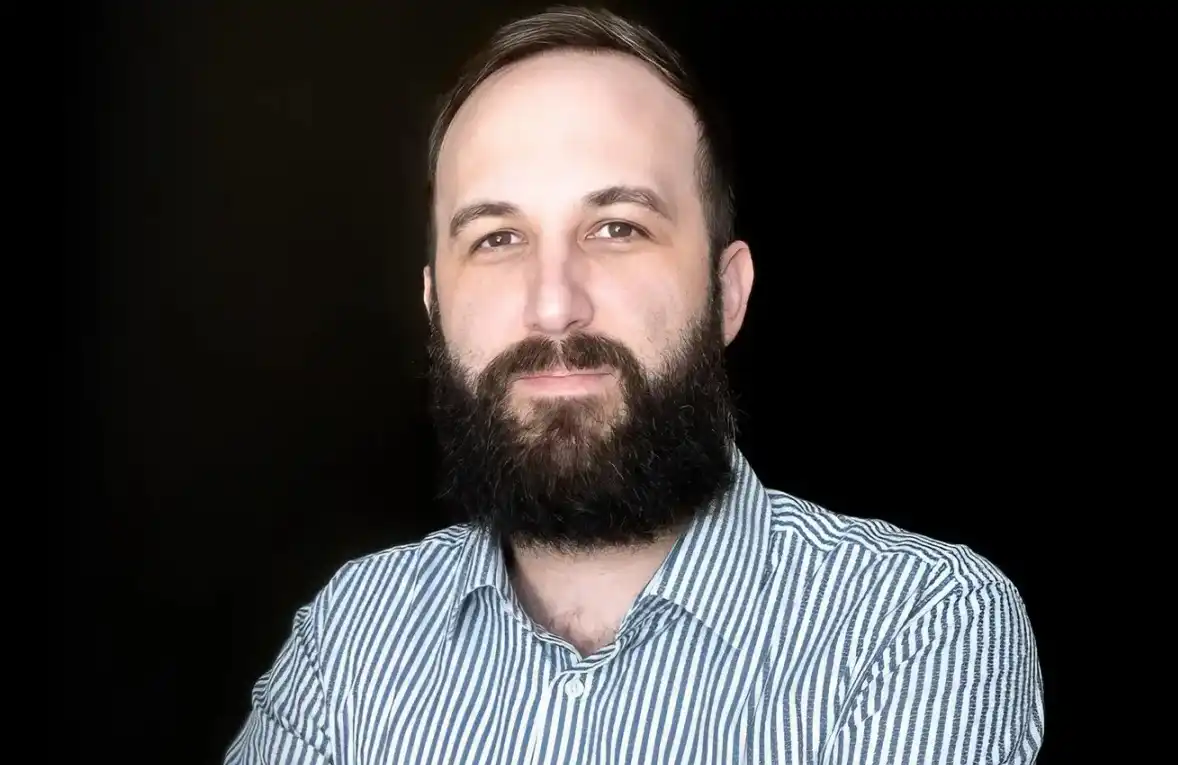Forbes: Robinhood Aims to Become the "Sole Financial Gateway" for the Younger Generation
Original Article Title: Inside Robinhood's Crypto-Fueled Plan For World Domination
Original Article Author: Nina Bambysheva, Forbes
Original Article Translation: Luffy, Foresight News
Cryptocurrency financiers appearing at a chateau may seem out of place. This 25-acre estate styled like the "Golden Age" is perched on a hilltop overlooking the Bay of Cannes. But on a sunny afternoon in June, Robinhood took over this legendary mansion, known for its appearance in the Hitchcock film "To Catch a Thief," to host a crypto-themed event called "To Catch a Token." The event was orchestrated by Johann Kerbrat, the resident Robinhood Crypto business leader of the Azure Coast.
The event kicked off with a cinematic flair: in a video, Robinhood co-founder and CEO Vlad Tenev drove a 1962 midnight blue Jaguar E-Type convertible along the coastal road, paying homage to Cary Grant's classic entrance in "To Catch a Thief." Following the video, Tenev made a live appearance—dressed in a Tom Ford white pinstripe suit, sporting a black and white striped scarf, and carrying a green briefcase—welcoming over 300 invited guests, including Ethereum co-founder Vitalik Buterin, as well as executives from JPMorgan, Mastercard, Stripe, and other financial giants.
This "dramatic" appearance was not without purpose. Robinhood's stock price has reached $111 per share, hitting a historic high, up 384% from last year, with a market capitalization soaring to nearly $98 billion, placing it among the world's top 250 most valuable companies. By 2024, Robinhood achieved a profit of $1.4 billion, revenue close to $30 billion, managed assets of $255 billion, and a net deposit growth rate of 44% over the past year. Calculated by active or non-zero funded accounts, Robinhood's 26 million accounts quickly caught up to JPMorgan's Wealthfront (37 million), surpassing E-Trade under Morgan Stanley by 3 times and Merrill Lynch by 6 times in scale. Tenev's personal wealth grew sixfold in a year, reaching $6.1 billion.

Vlad Tenev Cover Photo, Guerin Blask for Forbes
This 38-year-old CEO is always on the go. In late May, he spoke to 35,000 Bitcoin supporters in Las Vegas, explaining how cryptocurrency will further disrupt global finance through "tokenization," transforming assets such as stocks, bonds, real estate, into digital tokens that can be traded 24/7 on a blockchain network. He then headed to Tampa for a Registered Investment Advisor conference, and a few weeks later, he was seen at Robinhood's luxury office in Manhattan delivering the annual shareholder address. "This week in New York, then off to France, and then to the UK," he quickly recited his itinerary, followed by a list of Robinhood's dozen-plus offices in the US, Europe, and Asia. "I have to visit each office at least once a year, and they keep growing."
Despite Tenev's youthful appearance, with his hairstyle and goatee reminiscent of Errol Flynn's portrayal of Robin Hood in 1938, his demeanor now resembles that of a seasoned CEO of a major financial institution. This emerging brokerage company that rose from the aftermath of the global financial crisis and the Occupy Wall Street movement has now "grown up," aiming to become a "digital-native hub" for financial services—an era more accustomed to digital transactions. According to Cerulli Associates data, in the next 20 years, they will inherit around $124 trillion in assets, with most coming from the baby boomer generation's parents.

In the week leading up to the "carefully orchestrated" appearance at the French chateau, Tenev explained the purpose of Robinhood's events: "Product launches happen quickly, and this is a great way to show the world what we're up to. We must be clear on the story each event needs to tell, which also greatly motivates the team."
This castle soiree was Robinhood's first-ever international crypto-themed event, unveiling several major announcements: Starting July, Robinhood will allow European users to trade blockchain-based "stock tokens"—a non-voting derivative that tracks hundreds of US stocks and ETFs, including tech giants like SpaceX, OpenAI, not yet listed. The trading will be commission-free, running 24/5. For US users, Robinhood is introducing cryptocurrency staking, allowing assets like Ethereum, Solana, to be locked on the blockchain network for yield. In June, Robinhood acquired the Luxembourg-based crypto exchange Bitstamp for $200 million, unlocking Bitcoin and Ethereum perpetual futures trading for European users. And underlying all this is the blockchain that Robinhood is actively building.
「Our industry is at a critical inflection point,」 Tenev told the VIPs cooling off in Riviera, 「We have the opportunity to prove to the world our long-standing belief: cryptocurrency is much more than a speculative asset; it has the potential to become a pillar of the global financial system. We want to turn this possibility into a reality.」
To understand Tenev's 「ambition,」 it may be helpful to first look back at Robinhood's turbulent history. In 2013, Tenev, a Stanford graduate in physics and mathematics, and co-founder Baiju Bhatt saw a disruptive opportunity. After graduation, the two developed high-frequency trading software for large hedge funds and witnessed firsthand the significant demand these funds had for trading volume. Retail investors accustomed to paying $10-25 per trade in commissions at brokerages like Charles Schwab, Fidelity, and Merrill Lynch could potentially become a source of significant trading volume. So, they created a novice-friendly mobile trading app, eliminating account minimums and commissions, knowing that hedge funds would pay to execute retail orders. They promoted this zero-commission platform with the slogan of 「democratizing finance,」 and its launch generated as much hype as a blockbuster game.
Prior to Robinhood's launch, there were nearly a million people on the waitlist on the back of the Apple App Store. By September 2019, established brokerages like Charles Schwab, E-Trade, Fidelity, and TD Ameritrade (acquired by Charles Schwab in 2020) began to eliminate commissions, making this startup's model the new industry standard.
However, the victory did not last long. In early 2021, driven by pandemic lockdowns and government economic stimulus policies, app trading volume skyrocketed but sparked a regulatory storm during the 「GameStop meme stock frenzy.」 Driven by the Reddit forum WallStreetBets, GameStop's stock price soared, seemingly disregarding its dismal fundamentals. This unprecedented volatility triggered massive collateral requirements for Robinhood's clearing house, forcing Tenev to halt the purchase of the stock on the platform. This was followed by user outrage, public criticism, and congressional inquiries, including questions surrounding the suicide of a young Robinhood options trader.
However, this upheaval exposed the outdated, opaque, and inefficient nature of U.S. stock trading, clarifying the idea that Tenev had been pondering: 「Can we really put stocks on the blockchain? I believe its value lies in enabling stocks to trade 24/7.」
Initially, Robinhood attempted to extend trading hours by partnering with alternative trading platforms like Blue Ocean in West Palm Beach to innovate the traditional system, but these efforts hit a roadblock. 「I didn't realize how hard it is to change these core infrastructures because so much relies on them. I may have been a bit naive at the time,」 Tenev admitted.
Meanwhile, his crypto lead Kerbrat is exploring alternative implementation paths. Due to the cautious stance of U.S. regulatory agencies towards digital assets during the Biden administration, the team has decided to experiment in Europe where there are already clear rules in place. "Sometimes, it's easier to build new infrastructure from scratch. We believe this technology can adapt to any jurisdiction, and given time, we can make it global," Tenev said. He knows that as millions of global investors start trading U.S. stocks like meme coins, his high-volume trading machine could experience exponential growth.
While Kerbrat delves into the European tokenization business, Robinhood is also undergoing a transformation in other areas. In March 2024, Bhatt, who is now worth $6.7 billion (having stepped down as co-CEO in 2020), left the company to pursue the field of space solar energy. Despite the ongoing user lawsuit stemming from the GameStation incident, Tenev has been busy launching a series of new products: individual retirement accounts (IRAs), high-yield savings accounts, a 3% cashback credit card (with a waitlist of 3 million), on-demand cash delivery private banking services, and complex options tools previously only available to institutional investors. In the words of Cantor Fitzgerald Managing Director Brett Knoblauch, Robinhood has become "a mousetrap that can trade anything."
This rapid release schedule aligns with the designer's own pace. The Bulgarian-born CEO, when reflecting, shrugged his shoulders in a "helpless" gesture: "I just wake up, work, eat, exercise, sleep. My wife doesn't like me saying this, but I actually prefer to integrate work into my personal life."
Tenev said that during Robinhood's explosive growth, he didn't fully anticipate the deep resonance of "accessible trading" and the entrepreneurial spirit. At a private event in Miami last year, the company's top users included not only self-taught day traders but also small business owners and founders of start-ups, whose attitude towards the market mirrored their "DIY spirit" when founding their companies. He believes that this strong independent drive is Robinhood's true "moat": "Entrepreneurs don't believe other experts can manage their affairs for them; they like to figure it out themselves." Robinhood was designed for them, a control panel where they can manage funds autonomously without a "gatekeeper."
Tenev plans to lead the next generation of investors in three "phases." Firstly, capture the active trader market, which has already shown immediate returns based on Robinhood's current strong performance. In the medium term (around 5 years), cover all user financial needs, from credit cards to cryptocurrency, mortgages, and IRAs. Finally, build the world's leading financial ecosystem, with Robinhood's blockchain potentially being the cornerstone. Tenev said as he prepared for the shareholders' meeting the next day, "The scale will be much larger than the first two phases. The opportunity starts slow but compounds over time."
Tokenization may be Robinhood's long-term goal, but its core crypto business is already a powerful force. By 2024, Robinhood's crypto-related revenue reached $626 million, a significant increase from the previous year's $135 million, accounting for more than one-third of total transaction revenue. In the first quarter of 2025, crypto-related revenue had already reached $252 million. "They are now grabbing market share from Coinbase in the U.S.," said Rob Hadick, General Partner at crypto venture firm Dragonfly. Cantor Fitzgerald's Knoblauch pointed out that in May 2025, Robinhood saw a 36% surge in crypto trading volume, while Coinbase experienced a decline. He acknowledged that Coinbase still dominates the institutional market, "Their service is more extensive, and they have custody services," but after Robinhood's acquisition of Bitstamp in June, they gained 5,000 institutional accounts and licenses in Europe and Asia.
Tenev and Kerbrat insist that Robinhood's model is fundamentally different from exchanges like Coinbase. "There's always someone in this industry telling you that this (blockchain) has an advantage over that, but they forget that the end-user experience is what matters. We don't want to build a technology just to talk about the technology; we want to create something that people can use daily and see as better than the traditional financial system," Kerbrat said.
Micky Malka, founder of Ribbit Capital and an early investor in Robinhood, Coinbase, and their European competitor Revolut, believes that focusing solely on Coinbase and Robinhood's competition is too short-sighted: "To me, the question for the next decade is how much market share they can take from traditional institutions, not fighting each other."
Knoblauch estimates that with $255 billion in assets under management, Robinhood will catch up to Interactive Brokers ($665 billion in client assets) in seven years, followed by Charles Schwab. He stated that Robinhood has been capturing its market share for 14 consecutive months.
Tenev is also seriously pursuing diversification. The old version of Robinhood was criticized for its overreliance on Payment for Order Flow (PFOF), a model that relies on high trading volumes and Wall Street's most aggressive hedge funds. Today, trading still accounts for 56% of revenue (down from 77% in 2021), but according to John Todaro, Managing Director at Needham & Company, Robinhood has 10 business lines expected to each generate over $1 billion in revenue within two years.
Take Robinhood Gold as an example. This premium service, initially priced at $5 per month or $50 per year, offering margin trading, professional research, and additional cash sweep yields, has now become the cornerstone of Tenev's robust subscription model. Current benefits include a 4% yield on brokerage cash, up to $1,000 in interest-free margin loans, and a 3% match on IRA contributions. The newly launched "Robinhood Gold Credit Card" (3% cashback on all purchases) has been issued to the first 200,000 customers. "If Gold members reach 15 million, subscription revenue will be close to $1 billion. This allows a business with strong cyclical tendencies to have recurring revenue, thereby diversifying the overall revenue base," Knoblauch said.
Then there's Robinhood Strategies. This "human-machine hybrid" smart advisory product introduced by Tenev targets the $60 trillion U.S. wealth management market dominated by legacy firms like Morgan Stanley and Merrill Lynch. With an annual management fee of 0.25% capped at $250 for Gold members, customers can access algorithm-managed, human-supervised rebalanced stock and ETF customized portfolios. Since its launch in March, this disruptive platform has attracted $350 million in funding.
Tenev describes his company's approach to developing new products as scientific, empowering small teams within Robinhood to test hypotheses with customers and receive real-time feedback on their moves on social networks.
Tenev's tokenization initiative in Europe is somewhat akin to a "moonshot." Europe has adopted many crypto rules that are still debated in the U.S. Congress, making it their "laboratory." "The experiment we're doing in Europe is: What would it look like to rebuild Robinhood entirely on a crypto track? Then we'll weigh the pros and cons and bring the essence of this EU version app to the U.S. and globally," he said.
Currently, the scale of stock tokenization is still small. xStocks under Switzerland's Backed Finance has tokenized over 60 listed stocks (including well-known companies like Apple, Amazon, and others), traded on major crypto exchanges such as Kraken, Bybit, but its daily trading volume is less than $10 million. There are many structural issues: these tokens are derivatives backed by off-chain assets, which means regular corporate actions (such as dividends, stock splits, or other events that may occur during weekend market closures) could disrupt the collateral calculation, leading to unexpected liquidation.
“There must be market makers to bear this risk, but how do they hedge when the market is closed? If they have to bear the risk, they have to widen the spread, charge users high fees,” said Hadick of Dragonfly, “Currently, off-chain infrastructure is immature, and on-chain products are also immature... I worry that these early-stage products will eventually turn into ‘duds.’”
But this has not stopped others from entering the game. In June, the Winklevoss twins' Gemini launched tokenized trading of Strategy stocks for EU users. Coinbase is reportedly seeking SEC approval to offer tokenized stocks, and even BlackRock CEO Larry Fink, who manages $12.5 trillion in assets, is urging the SEC to approve the tokenization of stocks and bonds. Robinhood is going even further: in addition to stocks, it is tokenizing shares of private companies and has announced the tokenization of shares of OpenAI and SpaceX, both currently valued at over $300 billion. OpenAI has publicly denied Robinhood's products, emphasizing that these tokens are not authorized or endorsed by the companies. “No founder wants their equity to be traded on-chain, held by unknown holders,” Hadick cautioned.
Facing skeptics, Tenev is already an experienced “veteran.” “It’s indeed a bit ‘rough’ at the moment,” he admits, “I think brokers don’t want us to easily ‘pull out’ their stocks. But what happens if it becomes self-custody? When you can tokenize and self-custody, you can become independent of the broker’s infrastructure—just like you can use a crypto wallet on MetaMask, Robinhood, or Coinbase, in the future, you can seamlessly hold stocks through any interface and trade in almost all scenarios.”
This is exactly why Tenev is obsessed with making Robinhood the “sole financial tool” for young users. In the retail financial services sector, the power of “inertia” is second only to compound interest. Users are essentially “sticky,” but Tenev knows that as trillions of dollars are inherited by the digital-native descendants of the baby boomer generation, giants like Fidelity, Charles Schwab, and Merrill Lynch are becoming fragile. In fact, he believes that the biggest competitor is not Coinbase or Fidelity, but companies like Anthropic and OpenAI: “They move the fastest and do the most interesting things. However, it’s too early to say that ChatGPT will disrupt the finance industry.”
Early Robinhood investor Malka (whom Tenev refers to as a mentor and, according to Forbes estimates, whose company has made over $5 billion in profit from this investment) is a “die-hard fan” of Tenev: “Robinhood's leaders are not yet 40 years old, extremely ‘AI-native,’ understand the future of AI, understand tokenization, and can combine these two strategies, few can do it. We are ushering in the dawn of the ‘Internet of Money’—anyone in the world can invest in the same product. Credit approvals will be more perfect, loans will be cheaper. All of this will come true.”
Tenev believes that Robinhood will eventually deploy an AI agent to replicate and optimize the services of a high-net-worth family office, bringing "the family office to your pocket".
AI is so central to Tenev's vision that the former math Ph.D. candidate recently co-founded an AI startup, Harmonic, and serves as chairman, operating alongside computer scientist Tudor Achim, who previously led the autonomous driving company Helm.ai. In July, Harmonic secured a $100 million investment in a Series B funding round led by Andreessen Horowitz, Paradigm, and Sequoia Capital, valuing the company at $8.75 billion. This "mathematical superintelligence" lab is building an advanced reasoning engine to "guarantee accuracy, dispel illusions"—undoubtedly a useful feature in an era where AI and money intertwine.
"It would be magical if we could solve the Riemann Hypothesis or other major Millennium problems on a mobile app," Tenev muses, "I don't want to just watch; I want to actively participate."
Welcome to join the official BlockBeats community:
Telegram Subscription Group: https://t.me/theblockbeats
Telegram Discussion Group: https://t.me/BlockBeats_App
Official Twitter Account: https://twitter.com/BlockBeatsAsia


 Forum
Forum Finance
Finance
 Specials
Specials
 On-chain Eco
On-chain Eco
 Entry
Entry
 Podcasts
Podcasts
 Activities
Activities
 OPRR
OPRR









